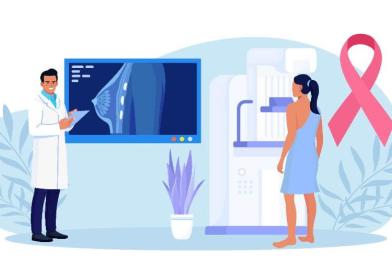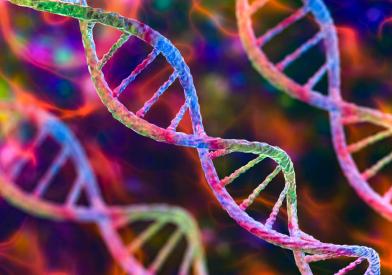
Cancer Prevention and Risk Reduction
As part of our commitment to helping patients, families, and loved ones to reduce the risk of a cancer occurrence or recurrence, Dana-Farber Cancer Institute offers a wealth of supportive services and programs. We are here for our patients – from the most advanced and complex genetic testing in our Center for Cancer Genetics and Prevention, to the lightest touch of therapeutic massage in our Zakim Center for Integrative Therapies.
Assessing and Managing Cancer Risk
Centers for Early Detection and Interception
When we can detect cancer early, we have a greater chance of treating and curing that cancer. Centers for Early Detection and Interception is a new multidisciplinary clinical and research program for individuals who are at increased risk of developing cancer. As a patient, you will have access to Dana-Farber's early detection experts across numerous cancer types — all working together to help you understand and reduce your individual risk of progressing to cancer.
Center for Cancer Genetics and Prevention
Dana-Farber’s Center for Cancer Genetics and Prevention includes a team of expert medical oncologists, gastroenterologists, geneticists, gynecologists, psychologists, surgeons, nurses, and genetic counselors, who provide cancer risk assessment and comprehensive recommendations for managing cancer risk for adults.
Pediatric Cancer Genetic Risk Program
The Pediatric Cancer Genetic Risk Program at Dana-Farber/Boston Children's provides cancer risk assessment for children, comprehensive recommendations for managing cancer risk in children, and psychosocial support for families affected by hereditary cancer.
Support and Strategies for Reducing Cancer Risk

Nutrition Services
Our nutrition experts help patients follow a healthy diet during and after cancer treatment. Learn about our nutrition services, including meal planning.

The Leonard P. Zakim Center for Integrative Therapies and Healthy Living
The Leonard P. Zakim Center for Integrative Therapies and Healthy Living is dedicated to enhancing the quality of life for cancer patients and their families by incorporating complementary therapies into traditional cancer care.

Eating Well During Cancer Video Series
This video series and resource toolkit features Dana-Farber nutrition specialist Stacy Kennedy, MPH, RD, CSO, LDN, and explores how diet can help support your health and well-being during and after cancer treatment.
How Does Exercise Reduce Cancer Risk?
This much is known: A sedentary lifestyle raises the risk of cancer, while physical activity — even moderate exercise — can reduce the risk not only of developing cancer but having a recurrence following treatment.
Find Skin Cancer Early: Know Your ABCDEs
With an estimated 8,500 new cases of skin cancer diagnosed in the U.S. every day, it is important that you not only protect yourself from the sun’s UV rays, but also regularly check your skin for anything out of the ordinary. This infographic shows you how.







